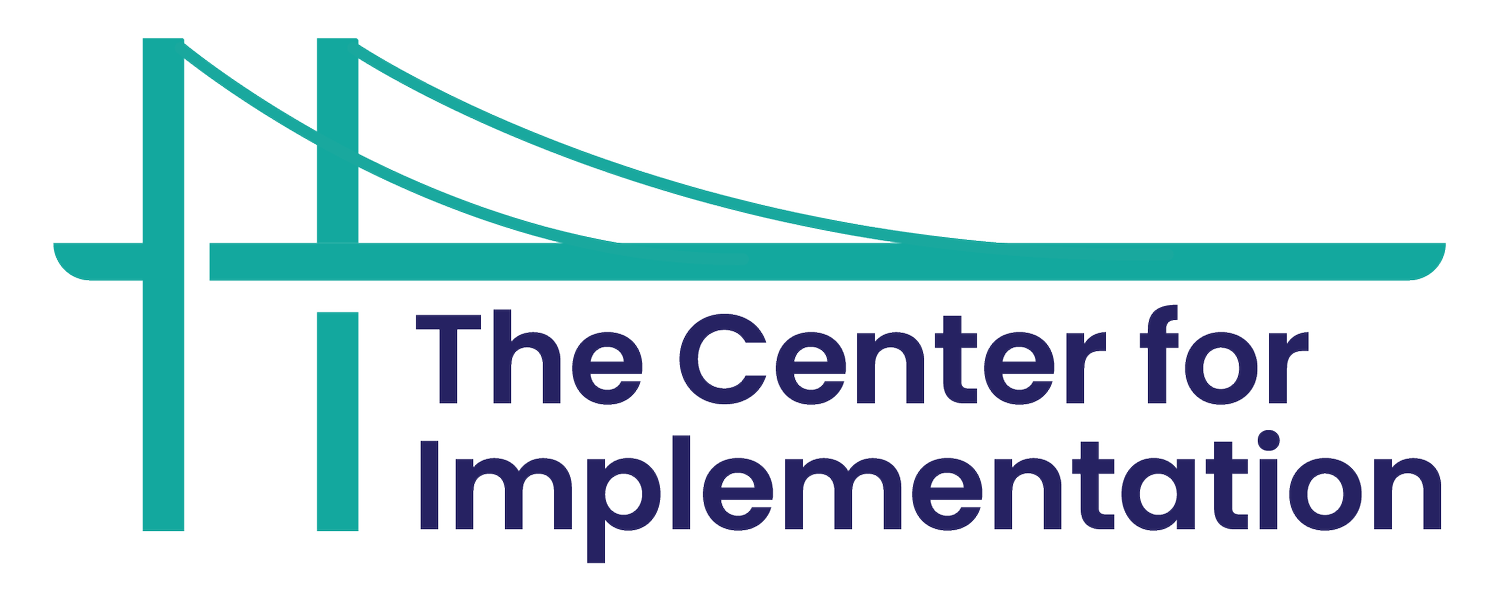Featured Resource: Atlas Context Assessment Surveys
By Natalie Henrich, Senior Scientist; Director of Atlas Initiative, Ariadne Labs, Harvard T.H. Chan School of Public Health, and Amanda Jurczak, Senior Research Coordinator, Science and Technology Platform, Ariadne Labs, Harvard T.H. Chan School of Public Health
I am the Director of Ariadne Lab’s Atlas Initiative, a project focused on improving implementation of healthcare changes by aligning implementation with a health facility’s context.
Incorporating context in implementation
It is widely accepted that a cookie-cutter approach to implementation - implementing a change in the same way in all healthcare facilities regardless of the facilities’ context - doesn’t work. A critical first step for successful implementation is understanding the implementation context so that implementers and leaders can make decisions like: Is this the right time for us to implement this change? What are our weaknesses and how might they impact our implementation? Should we try to improve our weaknesses or adapt our implementation to “meet us where we’re at”? What are our strengths and how can we leverage them?
Developing the Atlas Context Assessment Surveys
Many frameworks, models and theories identify contextual factors that may impact a facility’s readiness to implement and they have informed numerous readiness and context assessment tools. The Atlas Initiative has contributed to this body of work with the development of a set of scalable context assessment surveys. By scalable, we mean that the surveys are low burden for facilities to complete, relevant across most health settings and health interventions, and publicly available. The Foundation Survey, one of 3 Atlas context assessment surveys, is used before implementation begins to help inform 1) whether to proceed with the implementation given the facility’s state of readiness and 2) the implementation strategy. To determine which factors to include in the survey, we reviewed 80 frameworks, models, theories, and existing tools (examples include CFIR (Damschroder et al. 2009), MUSIQ (Kaplan et al. 2012), PARIHS (Kitson et al. 1998), R=MC2 (Scaccia et al. 2015), and ORIC (Shea et al. 2014), read the literature on contextual factors and domains, and spoke with implementers and implementation scientists. We tracked the frequency of each domain across all our sources and prioritized the most commonly identified domains for inclusion in our survey based on the assumption that the frequency with which a domain shows up is a signal for its relative importance for implementation. The following figure shows the domains included in the assessment with examples of factors that compromise the domains.
The Foundation survey was tested in a wide range of health care settings. After completing the survey, sites received a report that clearly displayed their strengths and challenges. With feedback from Ariadne Labs’ implementation coaches, sites were encouraged to discuss the causes of discordance between respondents in different roles, to problem solve how to mitigate the challenges, and to think about how to take advantage of their strengths. The reports helped the coaches quickly and effectively target the coaching sessions to focus on aspects of the site’s context that put the implementation at risk.
By incorporating learnings from frameworks, theories, models and existing tools we created a feasible and useful context assessment survey. Using tools, like the Foundation survey, can contribute to more successful implementation and, ultimately, better outcomes.
References
Damschroder LJ, Aron DC, Keith RE, Kirsh SR, Alexander JA, Lowery JC. Fostering implementation of health services research findings into practice: a consolidated framework for advancing implementation science. Implement Sci. 2009;4:50.
Kaplan HC, Provost LP, Froehle CM, Margolis PA. The Model for Understanding Success in Quality (MUSIQ): building a theory of context in healthcare quality improvement. BMJ Qual Saf. 2012;21:13-20.
Kitson A, Harvey G, McCormack B. Enabling the implementation of evidence based practice: a conceptual framework. Qual Health Care. 1998;7:149-158.
Scaccia JP, Cook BS, Lamont A, et al. A practical implementation science heuristic for organizational readiness: R = MC2. J Community Psychol. 2015;43:484-501.
Shea CM, Jacobs SR, Esserman DA, Bruce K, Weiner BJ. Organizational readiness for implementing change: a psychometric assessment of a new measure. Implement Sci. 2014;9:7.
This article was featured in our monthly Implementation in Action bulletin! Want to receive our next issue? Subscribe here.


